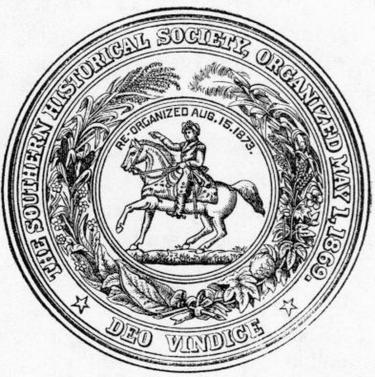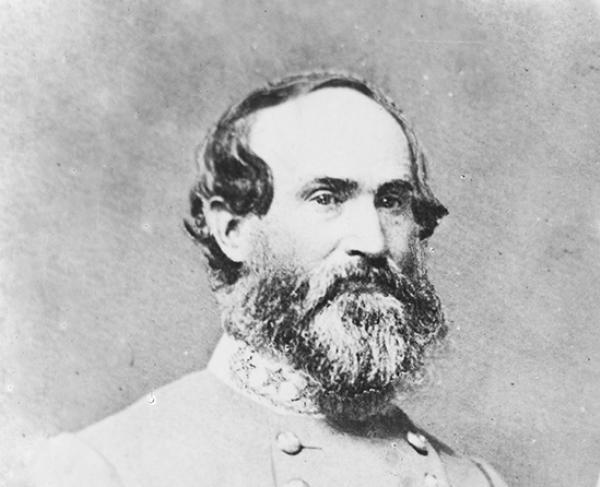The Myth of The Lost Cause: James M. McPherson, Historian
Last edited Mon Mar 8, 2021, 06:29 PM - Edit history (2)
The Lost Cause, Definitions and Origins, James M. McPherson, Historian, American Battlefield Trust, 2020.
https://en.wikipedia.org/wiki/James_M._McPherson
As the Civil War drew to a close in 1865, defeated Southerners looked around at the death and destruction that the war had inflicted on their homes, businesses, towns, and families. “The South was not only…conquered, it was utterly destroyed…More than half [of] the farm machinery was ruined, and…Southern wealth decreased by 60 percent,” states historian James M. McPherson. The war initiated over the issue of the preservation of slavery, as pronounced in the seceding states’ articles of secession and in the Confederacy’s constitution, was the cause of this devastation. “The prohibition of slavery in the Territories is the cardinal principle of this organization.,” read one such justification of secession and war in 1861.
With the abolition of slavery becoming the law of the land in 1865, it became harder and harder for many Southerners to justify the purpose of the war and the deaths of nearly 300,000 of their sons, brothers, fathers, and husbands. Thus, many Southerners set to work to rewrite the narrative of the war. Former Confederate general and one-time commander of the United Confederate Veterans claimed, “If we cannot justify the South in the act of Secession, we will go down in History [sic] solely as a brave, impulsive but rash people who attempted in an illegal manner to overthrow the Union for our Country.” Thus, from the ashes of war, the myth of the “Lost Cause” was born. There are 6 main parts of the Lost Cause myth.

- The seal of the Southern Historical Society, which is nearly identical to that of the Confederate States of America.
The first and most important myth is that secession, not slavery, was the cause of the war. Southern states seceded to protect their rights, their homes, and to throw off the shackles of a tyrannical government. To the proponents of the Lost Cause, secession was constitutional, and the Confederacy was the natural heir to the American Revolution. Because secession was constitutional, all those who fought for the Confederacy were not traitors. Northerners, specifically Northern abolitionists, caused the war with their fiery rhetoric and agitating, even though slavery was on its way to gradually dying a natural death. They also argued secession was a way to preserve the Southern agrarian way of life in the face of encroaching Northern industrialism. Second, slavery was portrayed as a positive good; enslaved people, who were submissive, happy, and faithful to their masters, were better off in the system of chattel slavery which offered the slaves protection.
Confederate Vice President Alexander H. Stephens declared in 1861 “Our new government is founded upon exactly the opposite idea; its foundations are laid, its corner-stone rests, upon the great truth that the negro is not equal to the white man; that slavery subordination to the superior race is his natural and normal condition.”
Following the end of the war, these formerly enslaved people were now said to be unprepared for freedom, which was an argument against Reconstruction and the 13th, 14th and 15th Amendments of the Constitution. The third tenet states that the Confederacy was only defeated because of the Northern states’ numerical advantage in both men and resources. The Confederate Army was less defeated than overwhelmed, as their lesser resources. Former Confederate officer Jubal A. Early justified the Southern defeat by stating that the North “finally outproduced that exhaustion of our army and resources, and that accumulation of numbers on the other side which wrought our final disaster.” Early went on to say that the South “had been gradually worn down by combined agencies of numbers, steam-power, railroads, mechanism, and all the resources of physical science.” The lack of southern manufacturing and the outnumbered population doomed it to failure from the start. Thus, the “Lost Cause.”...
More, https://www.battlefields.org/learn/articles/lost-cause-definition-and-origins

Jubal A. Early, https://en.wikipedia.org/wiki/Jubal_Early
empedocles
(15,751 posts)indurstrial north versus the agrarian south.
appalachiablue
(43,944 posts)the war was over anything but 'slavery' according to some misinformed.
wnylib
(25,355 posts)in high school who taught the same thing. Said it was about economics, not slavery, industrialization vs agricultural life and economies.
Told me I was "out of line" when I asked if slavery really was the issue since the agriculture of cash crops in the South depended on the massive labor of enslaved people.
appalachiablue
(43,944 posts)wnylib
(25,355 posts)but I don't know if my classmates did.
Historic NY
(39,813 posts)were seeing it in voting suppression and other thought process's.
Girard442
(6,840 posts)...Just a bunch of idiots who destroyed their lives and livelihoods by going up against a vastly superior force."
Well, OK then.
eppur_se_muova
(41,341 posts)Karadeniz
(24,732 posts)Had irked me for years. One day, while walking, I noticed it was gone. I was elated! I went inside to thank him, but he said it had gotten tattered and he'd ordered a new one. Then the lecture on how slavery wasn't the issue, it was states' rights.
keithbvadu2
(40,915 posts)The 'right' to own slaves.
mitch96
(15,719 posts)If I get the history right Lincoln used the act of freeing the slaves to block England from assisting the South. Too many abolitionists in the UK.. Lincoln even tossed around the idea of starting satellite countries that were populated by previous slaves. Back to Africa or somewhere in South America. He used it as a political tool and a war strategy. He needed bodies to go to war and once freed the previous slaves could now fight for the Union...
Interesting show if the facts are correct. YMMV
m
Martin68
(27,337 posts)was to keep the Union whole. The south seceded largely because Lincoln and the Republican Party were actively working to keep slavery from spreading to new states. Rather than go to war, Lincoln wanted to work on abolishing slavery gradually. After all, it was embedded in the Constitution and, except in time of war, a constitutional amendment would have been required to abolish slavery. Yes, the Emancipation Proclamation was partly a political move, because it had no effect on the South until it surrendered, and it did indeed bring England over to the side of the Union. However, it also had a military strategic role because it encouraged enslaved workers in the South to escape to the north for freedom, which damaged the Southern war effort when their manpower was radically reduced.
We will never know how Reconstruction would have proceeded had Lincoln lived to carry it out as he intended. I believe our history would have been very different had he lived. As it is, his Vice President, a Democrat, had Southern sympathies and failed to help build a society in the South were African-Americans could achieve social, economic and political equality. Southern states instituted laws that denied African-Americns basic rights and kept them under the thumb of the White population.
Martin68
(27,337 posts)the year that commemorated the100th anniversary of the first battle of the Civil War at Bull Run (Manassas), located only a few miles from the site of that battle. In my 4th grade Virginia History class I was brainwashed to believe all of the points enumerated in the posted Lost Cause article. While I hated slavery, I was taught to believe the war was based on economic factors, not slavery. I viewed Robert E. Lee as a great hero and someone to admire. I thought the Confederate battle flag was cool. I admired the equestrian statues of Lee and Jackson here in Charlottesville, where I now live.
I now understand how misled I was, and am actively involved in trying to revise the distorted version of history that led to the erection of such statues, and the attempt by the south to perpetuate stereotypes of African Americans and to keep that community in in subjection and suppression.
eppur_se_muova
(41,341 posts)... so war was inevitable, doncha know.
prodigitalson
(3,193 posts)settlers were butchering each other in Kansas prior to the war.
People get super emotional -to the point of ethnic cleansing - over tariffs.
![]()
